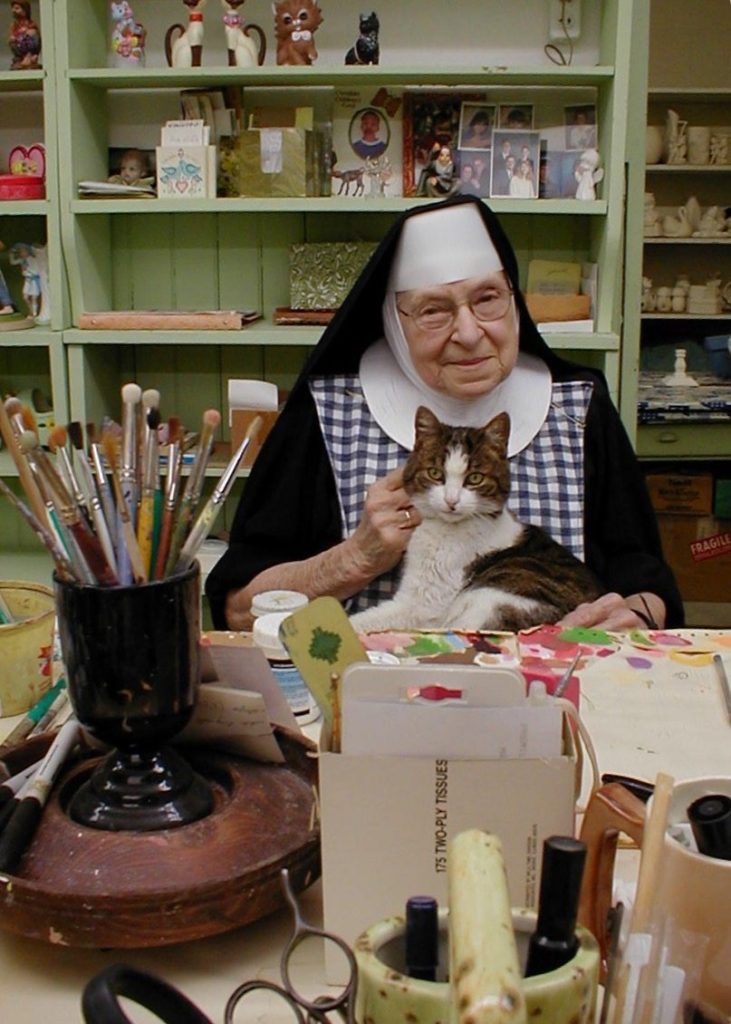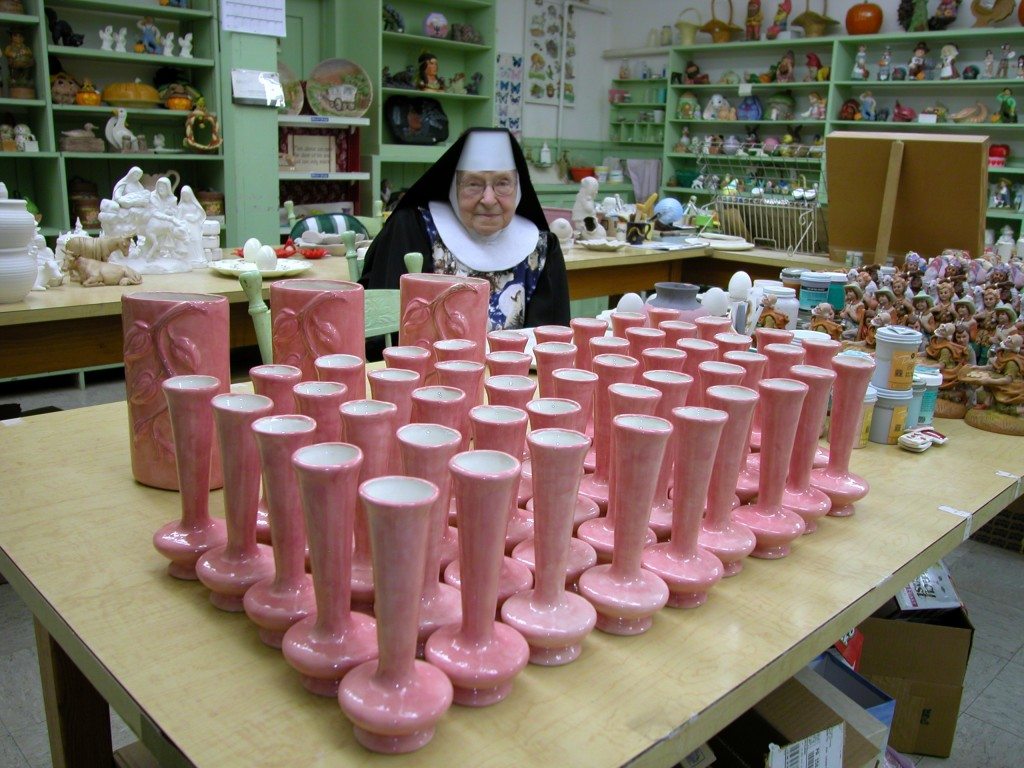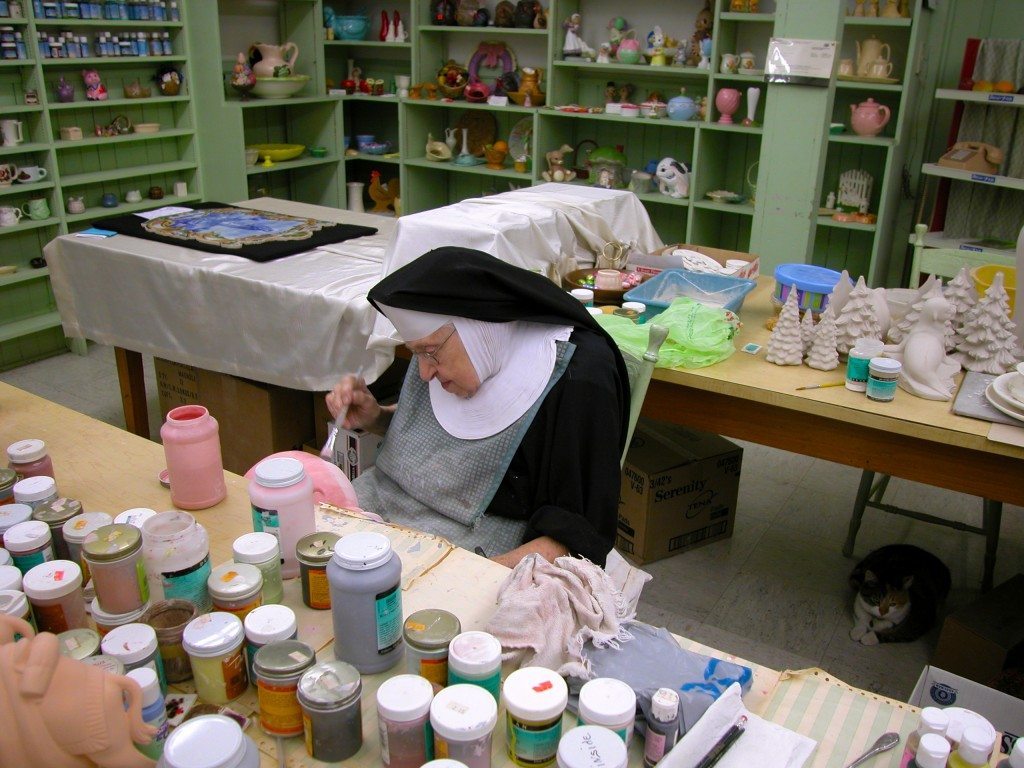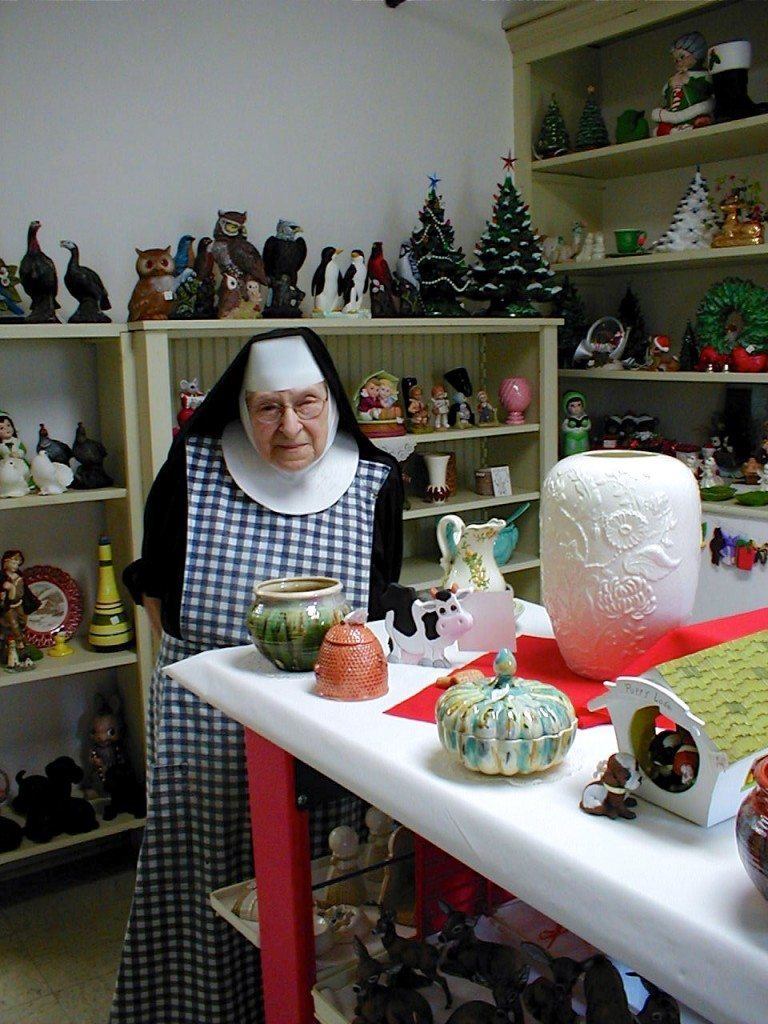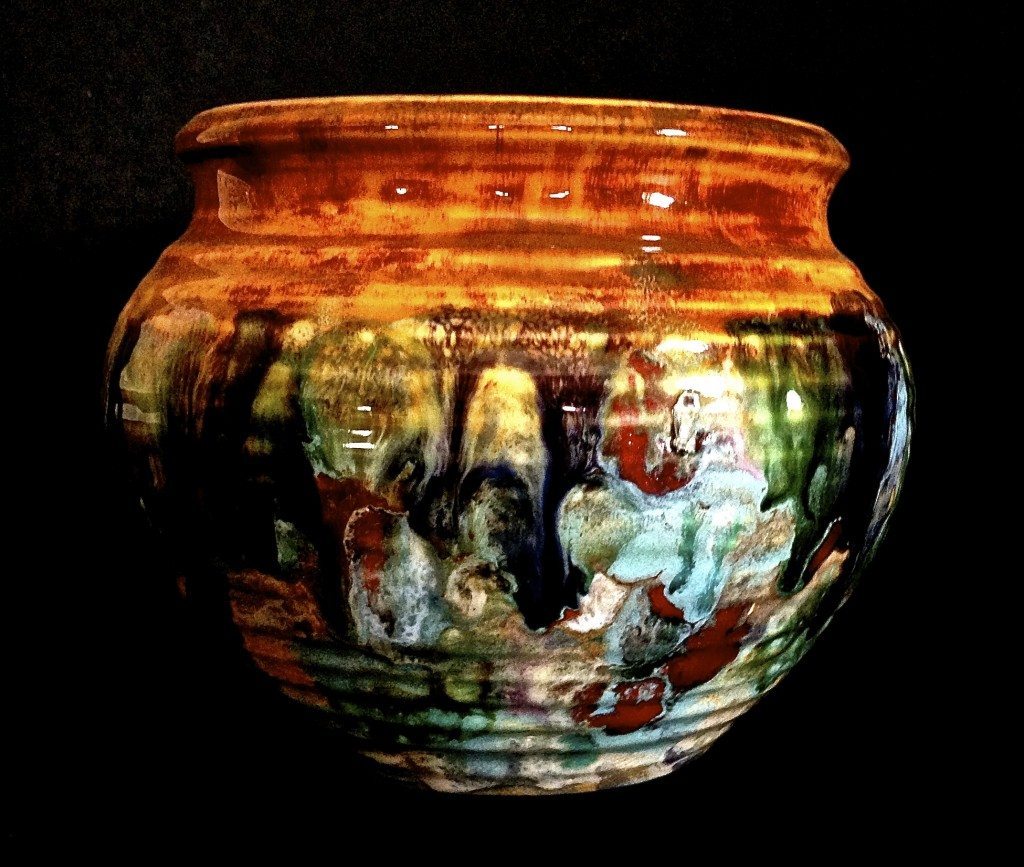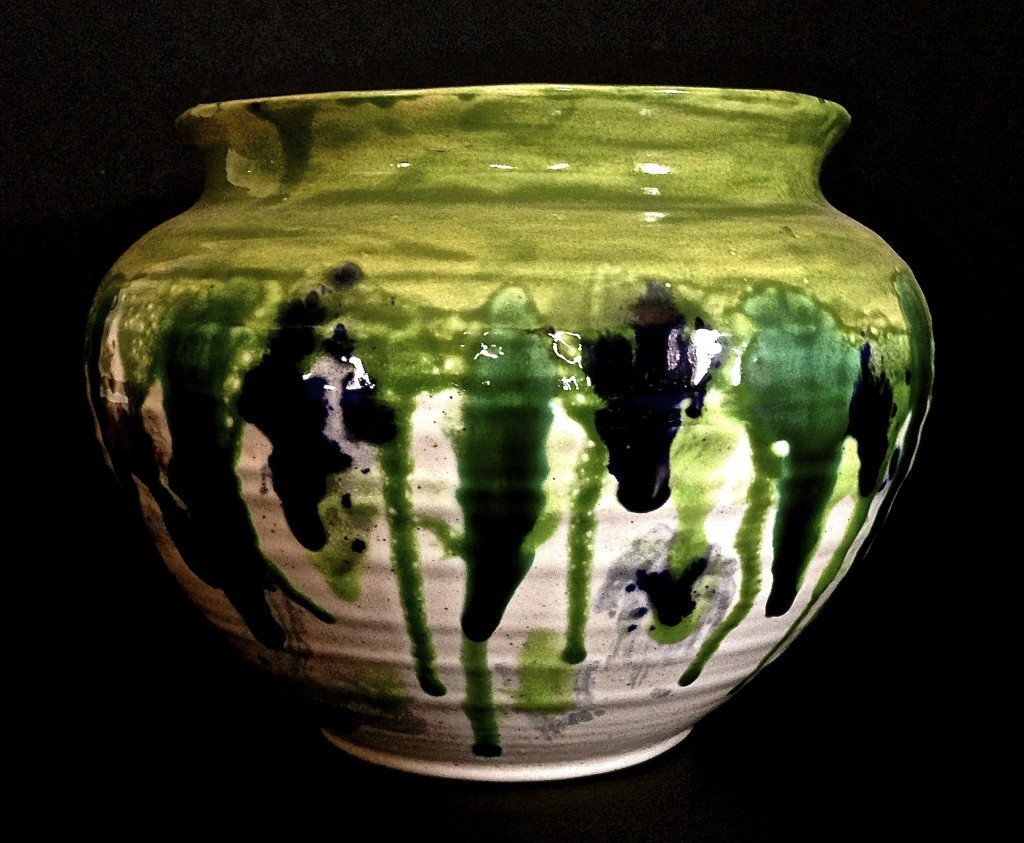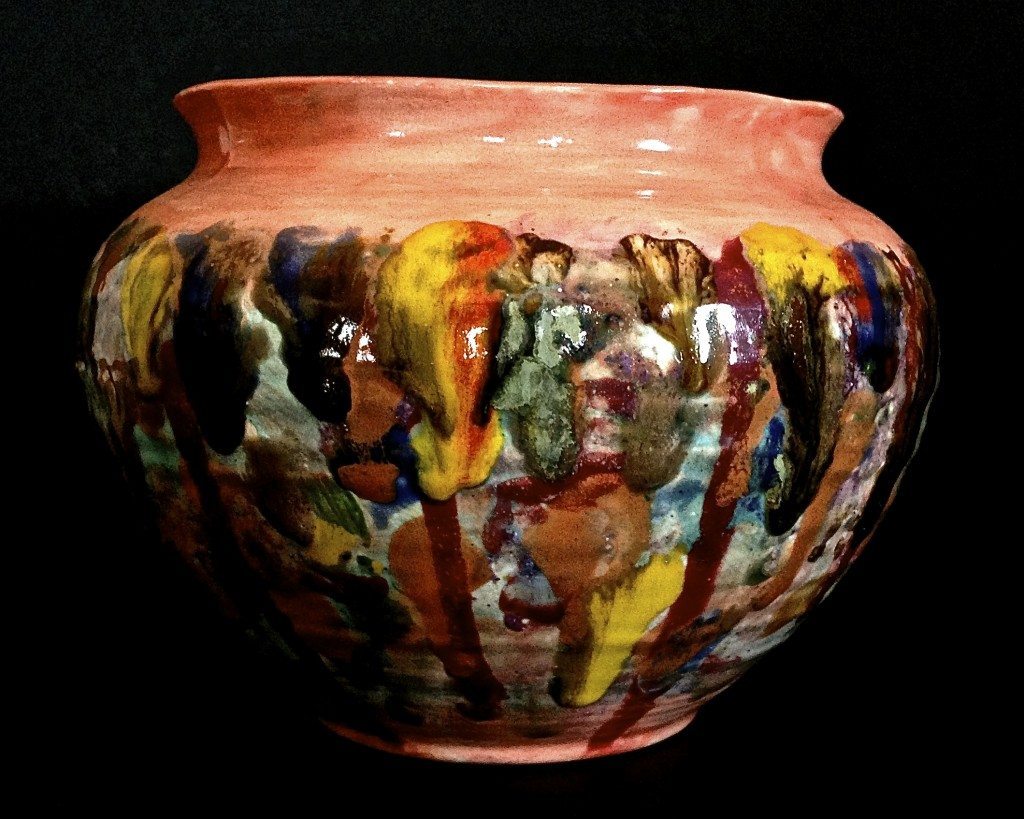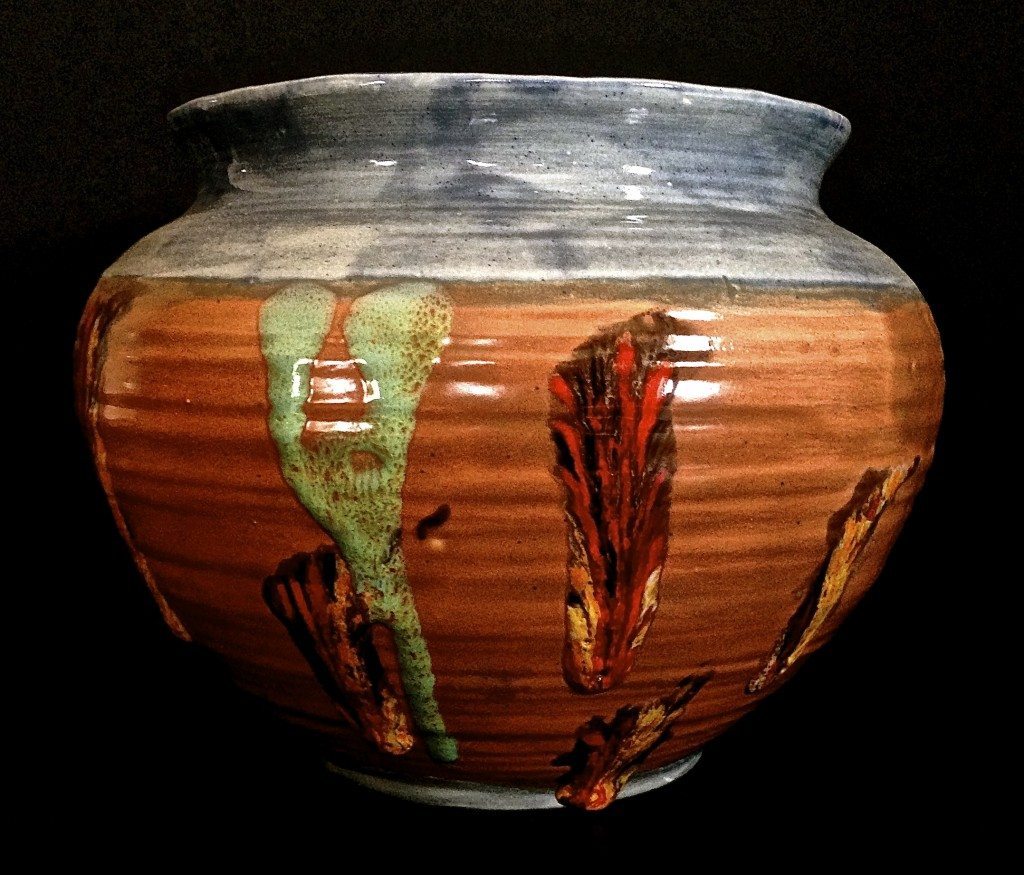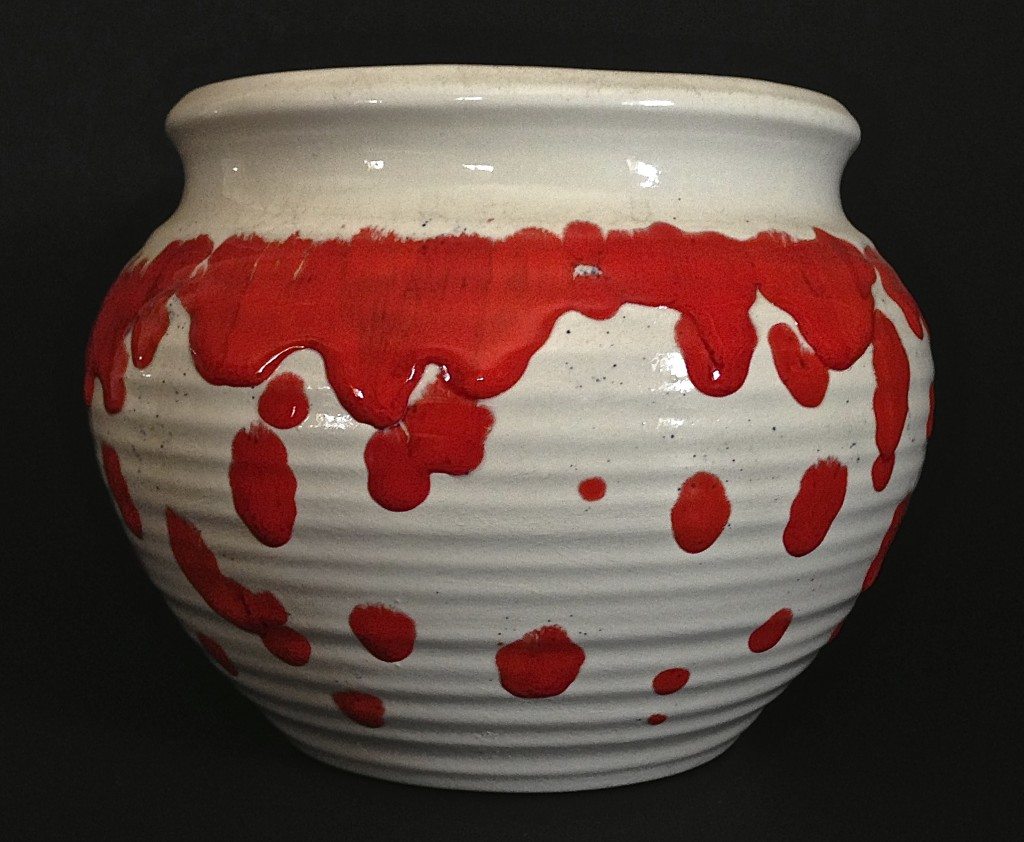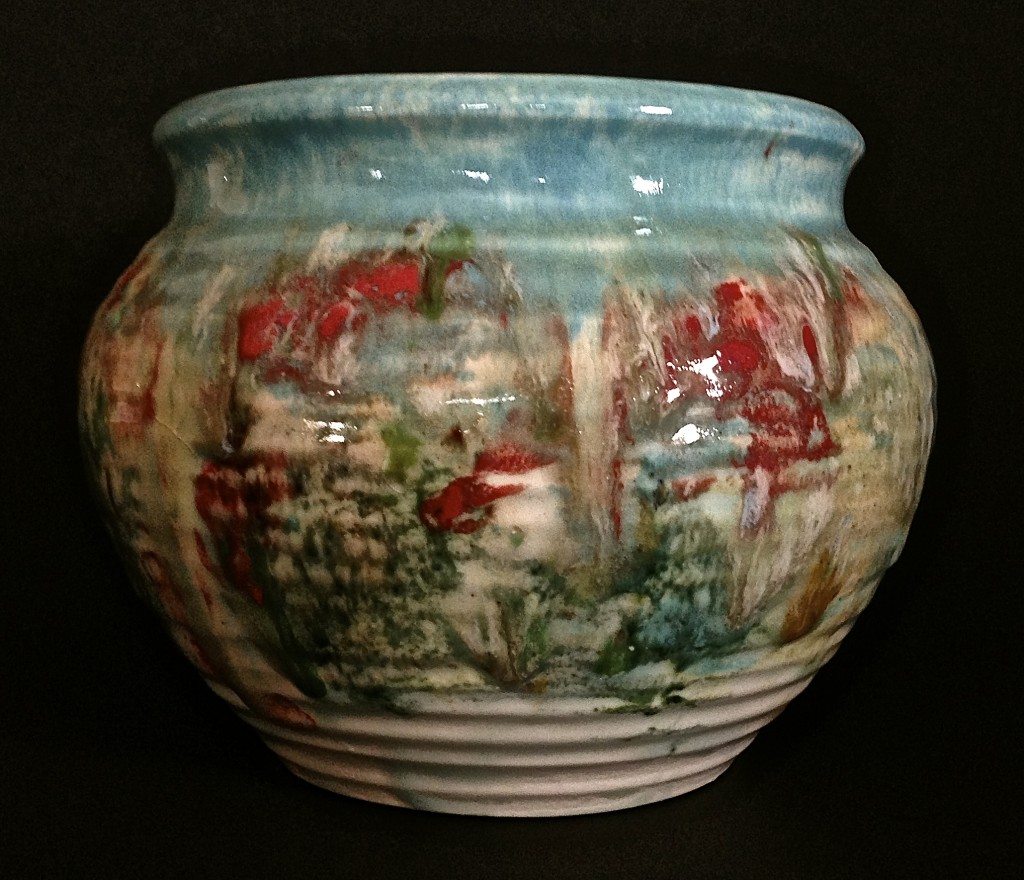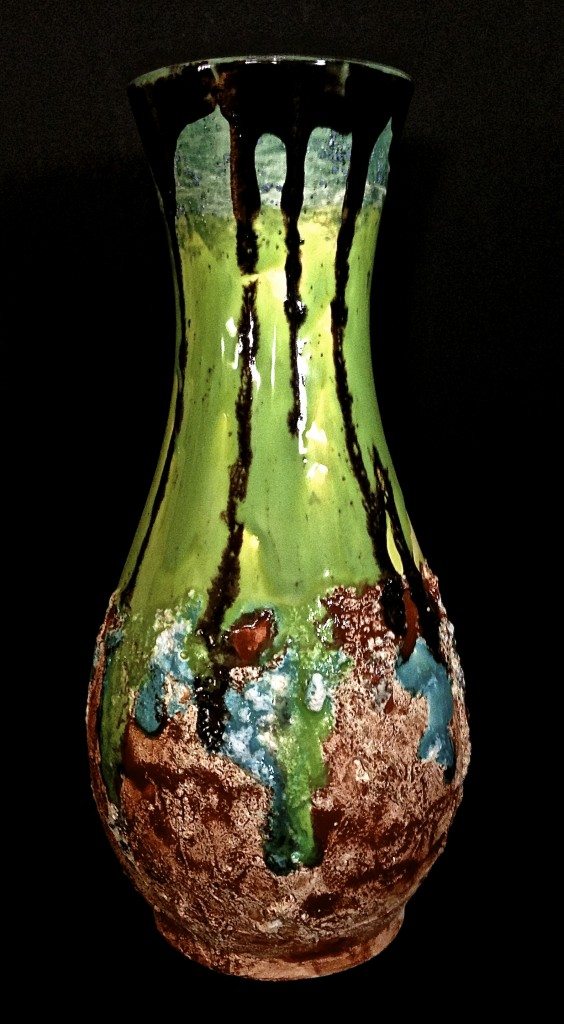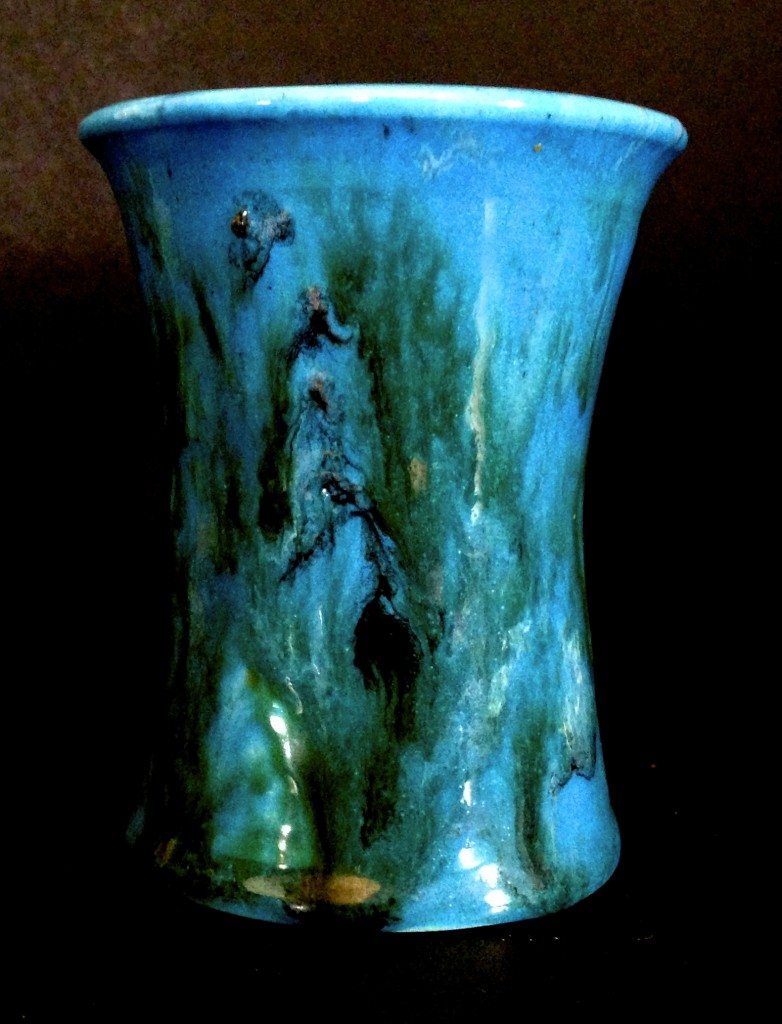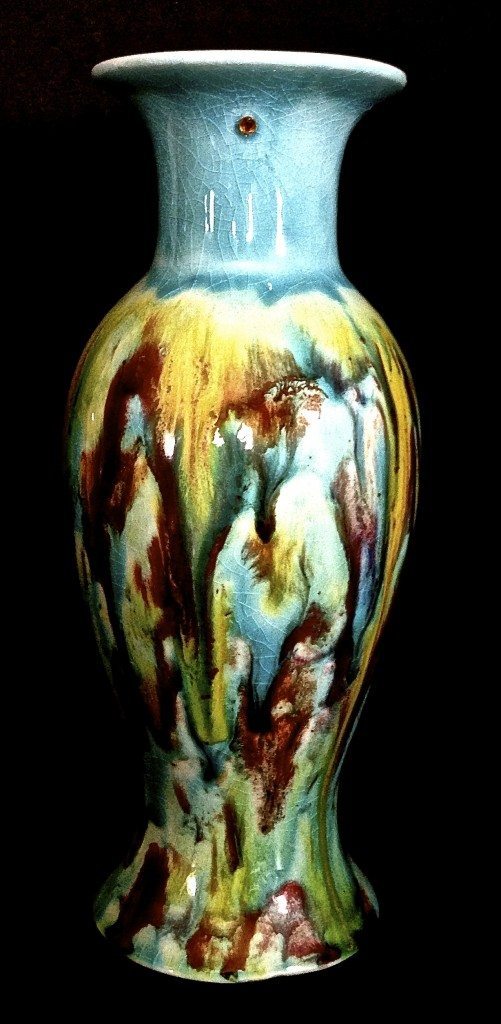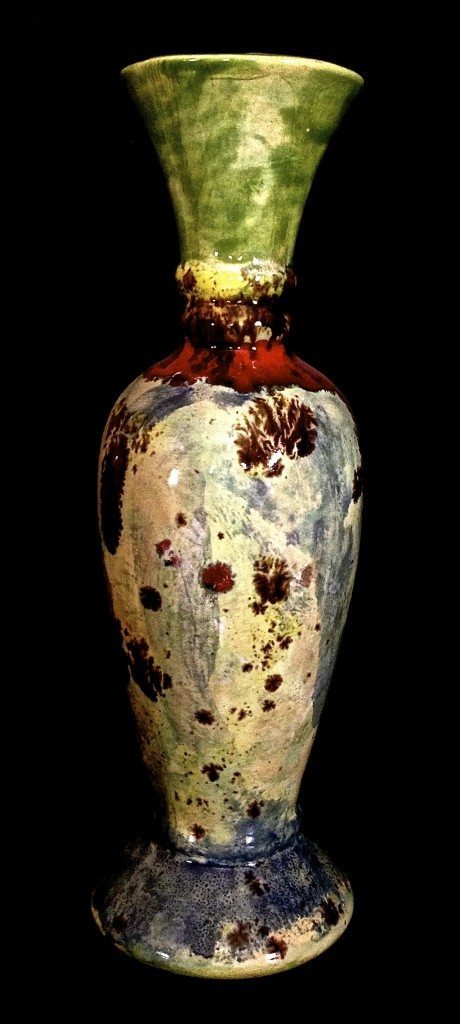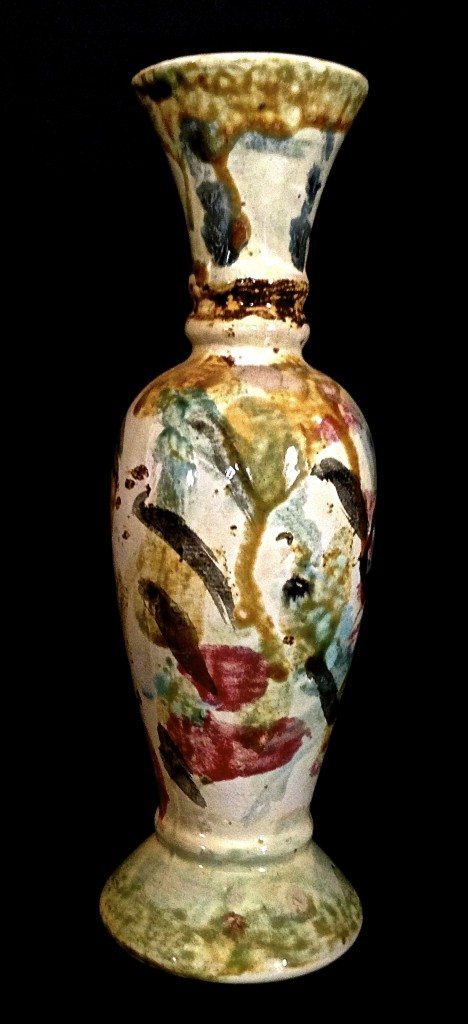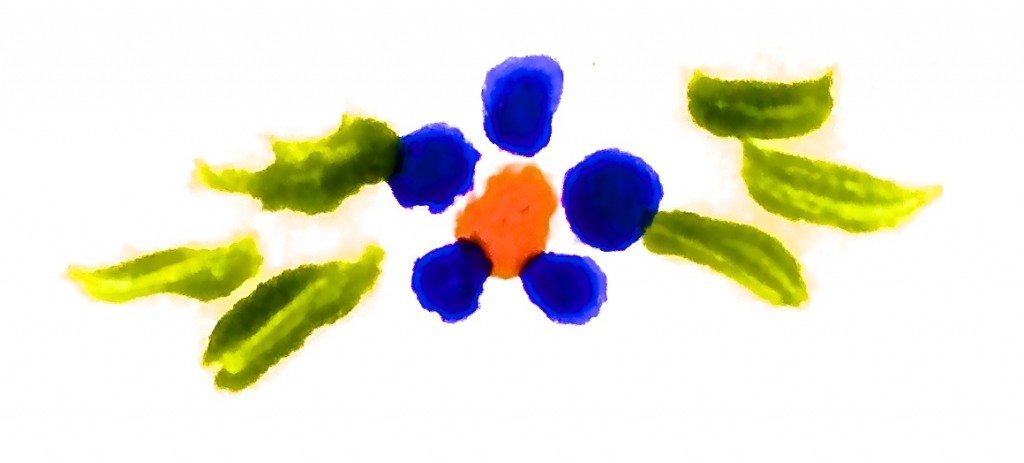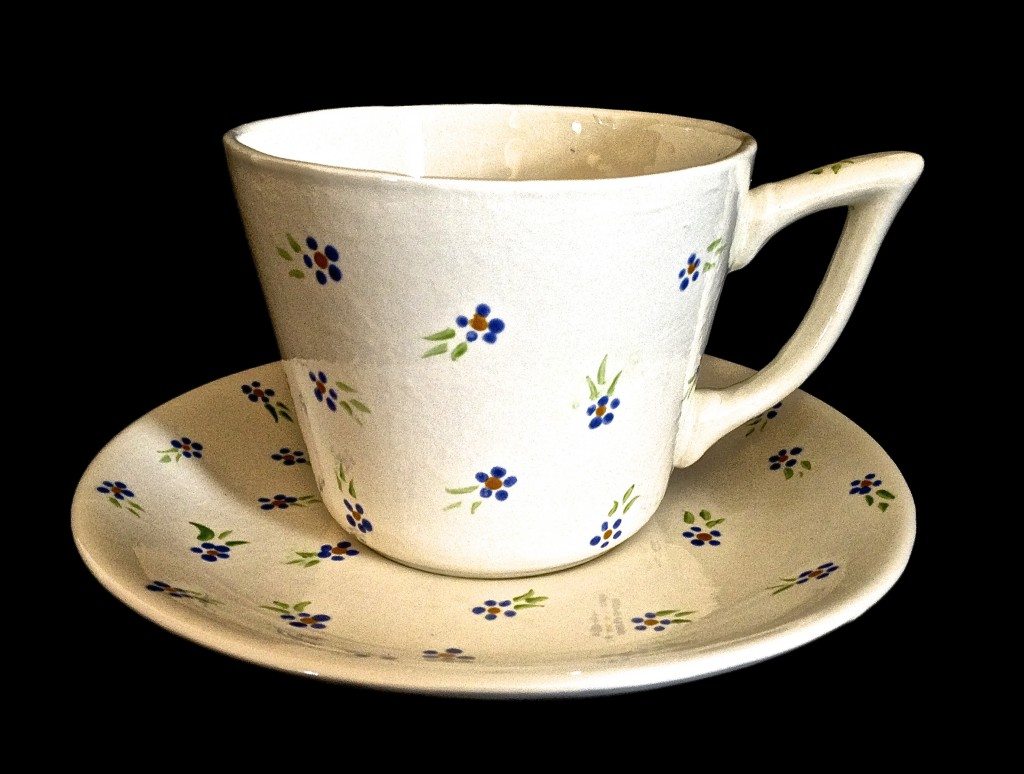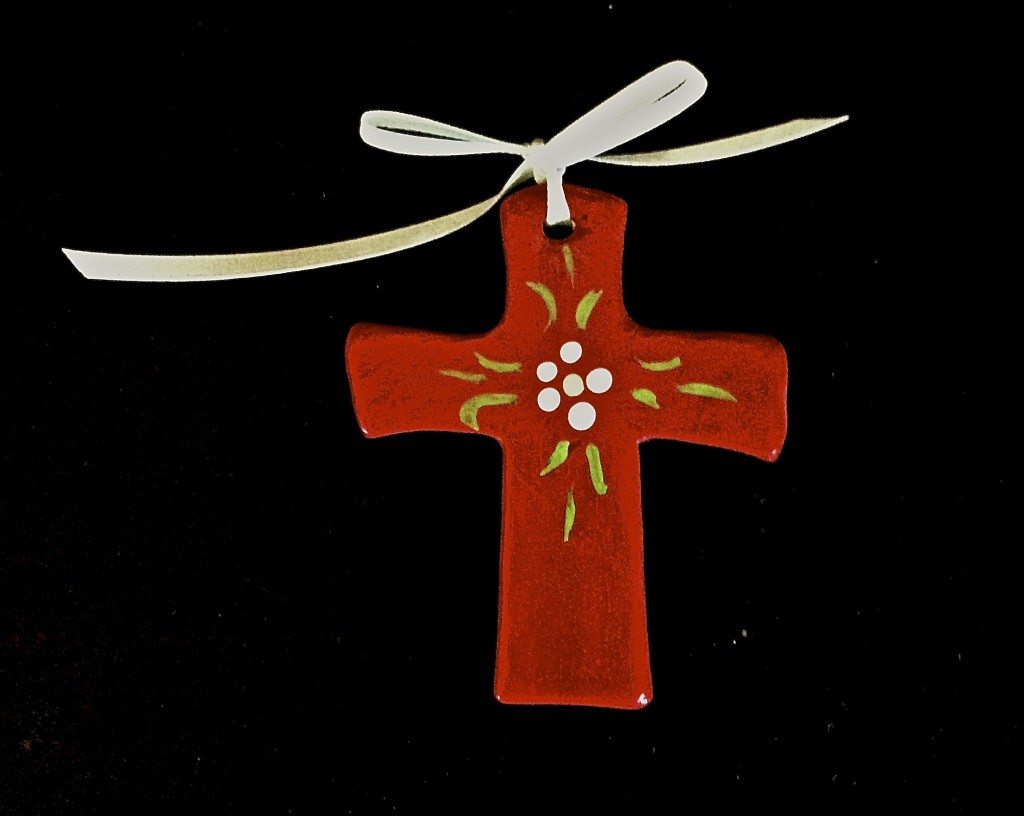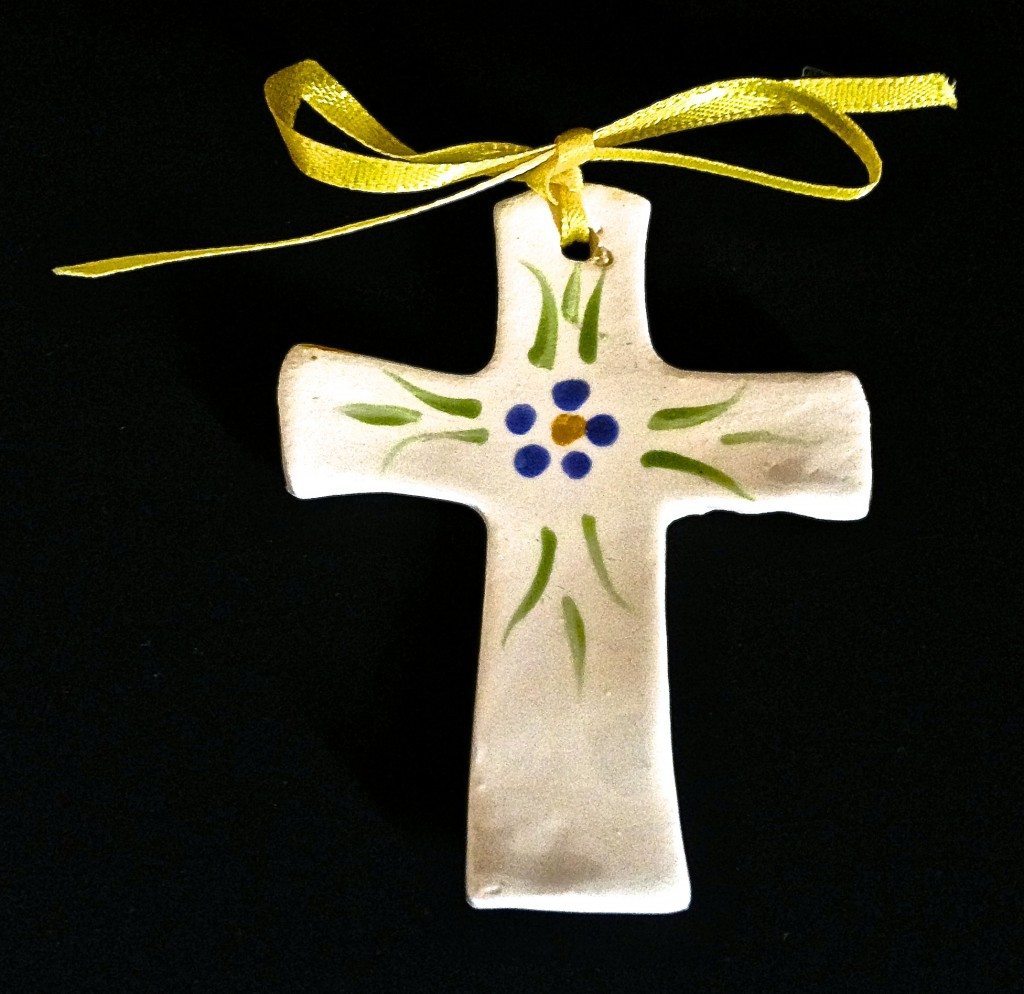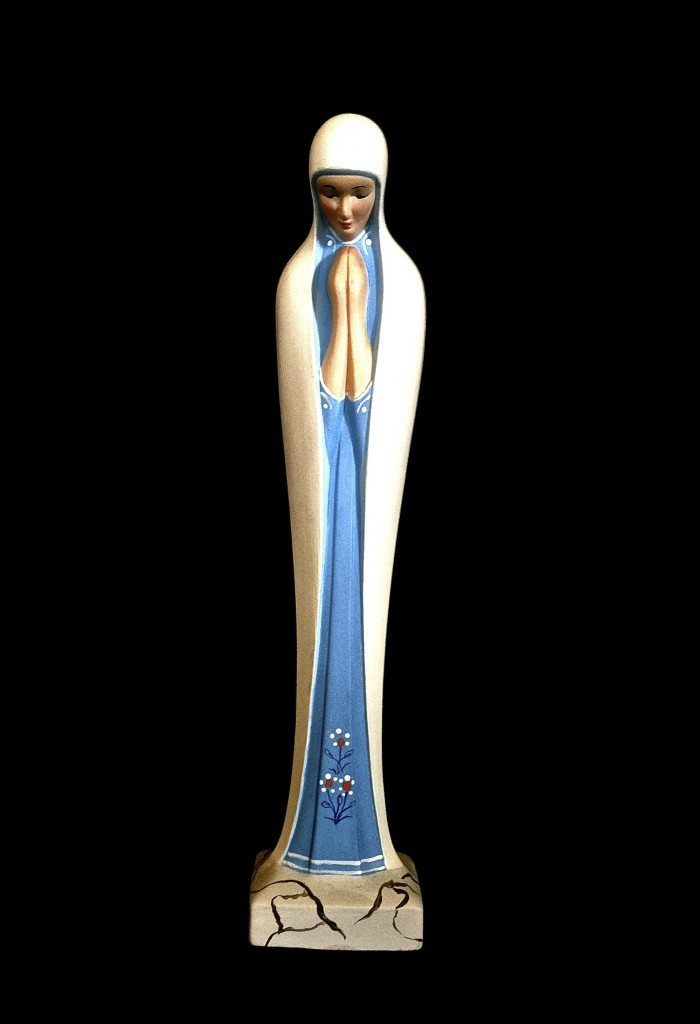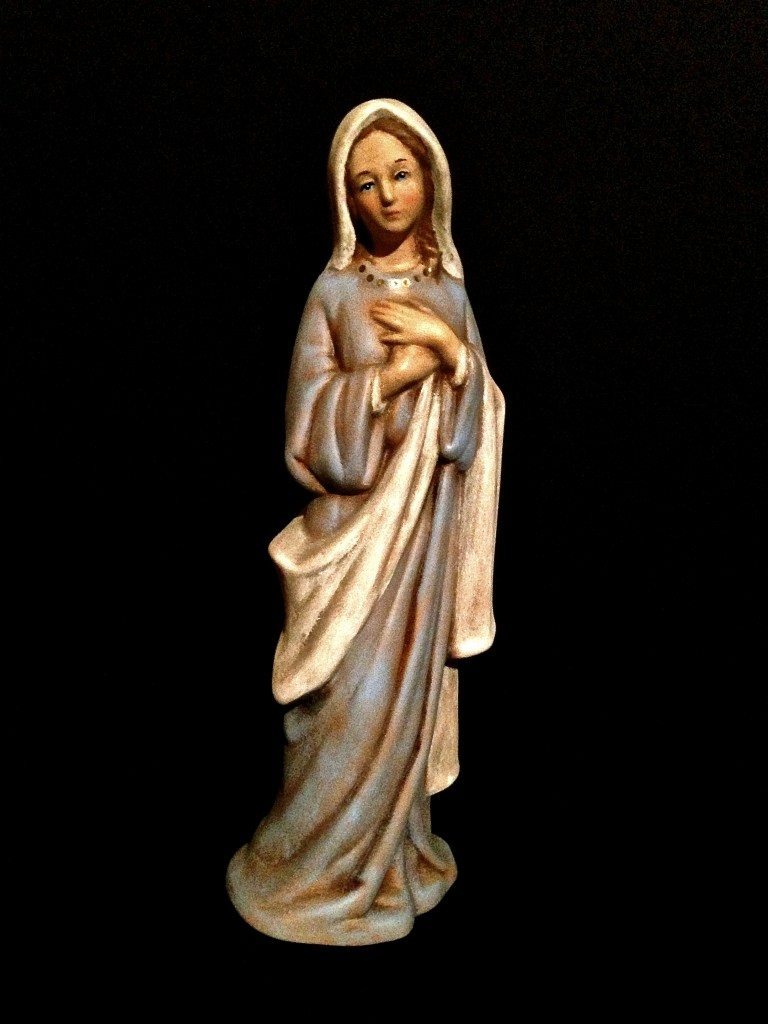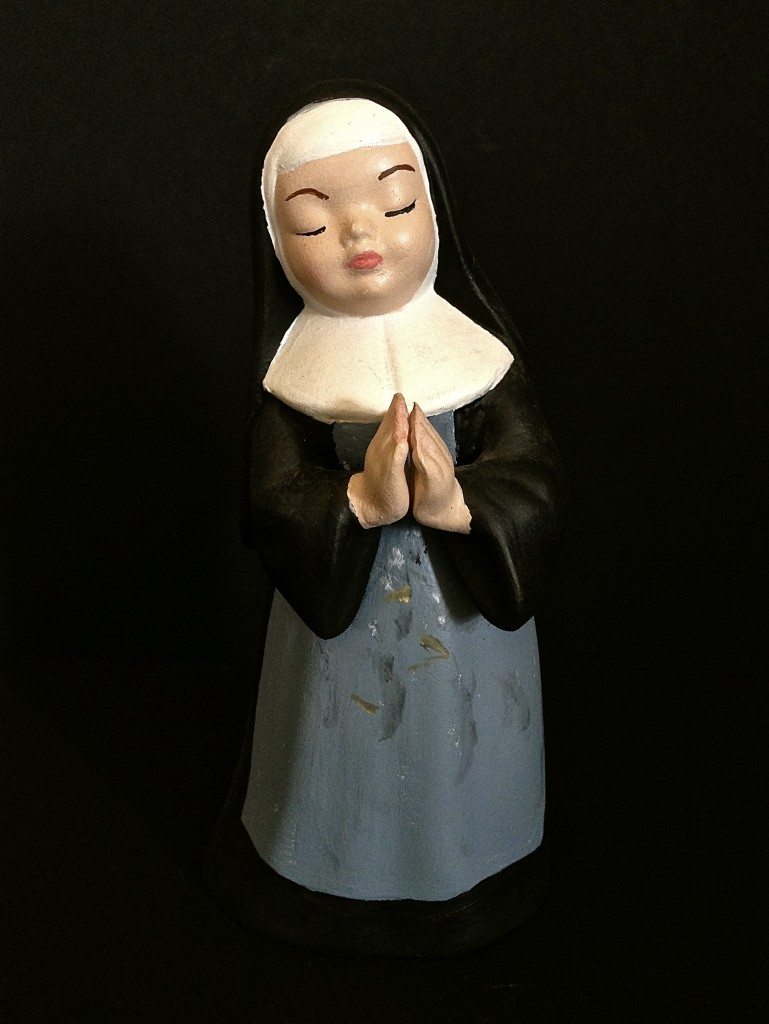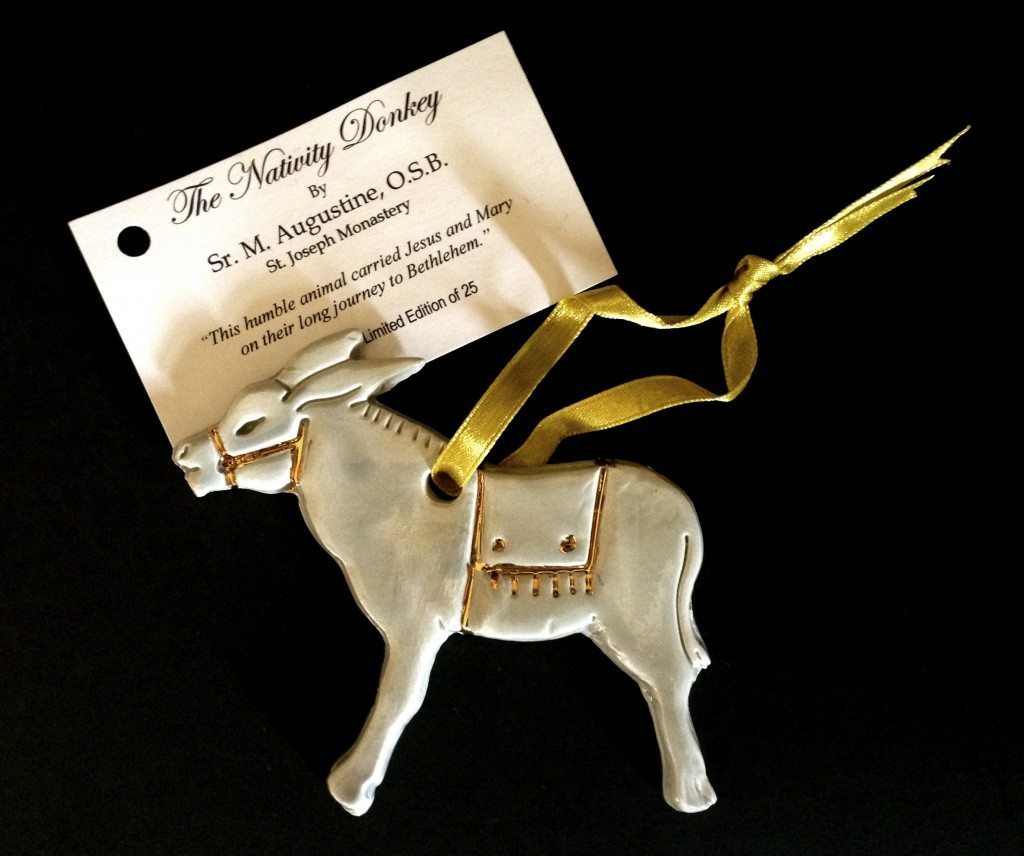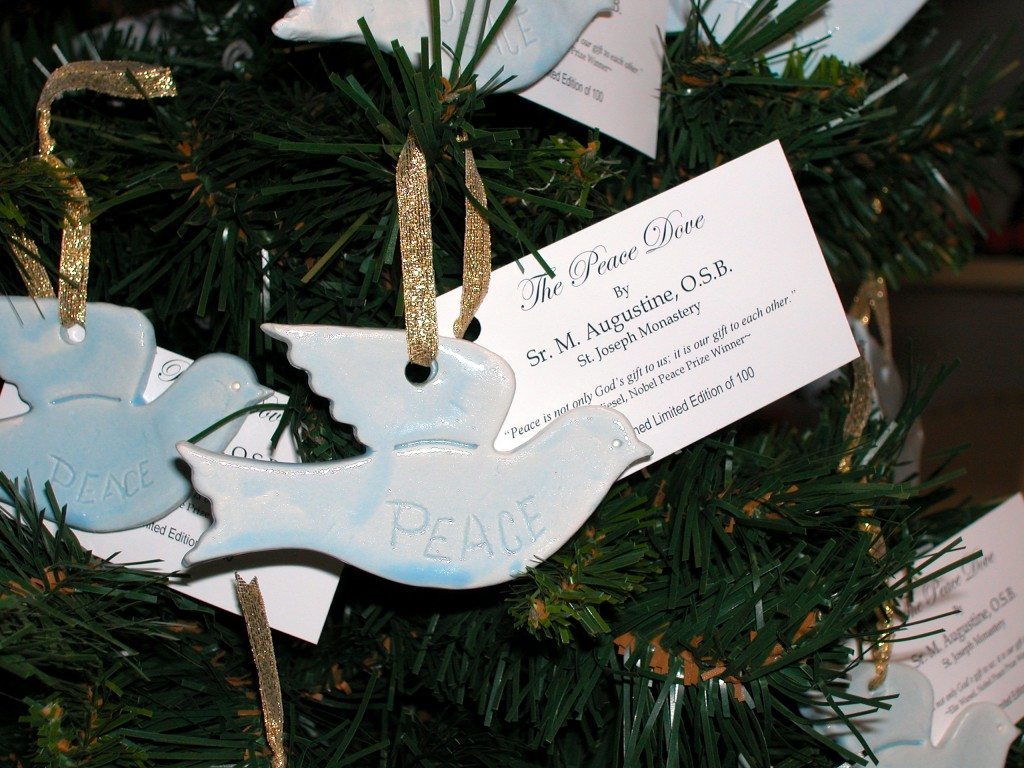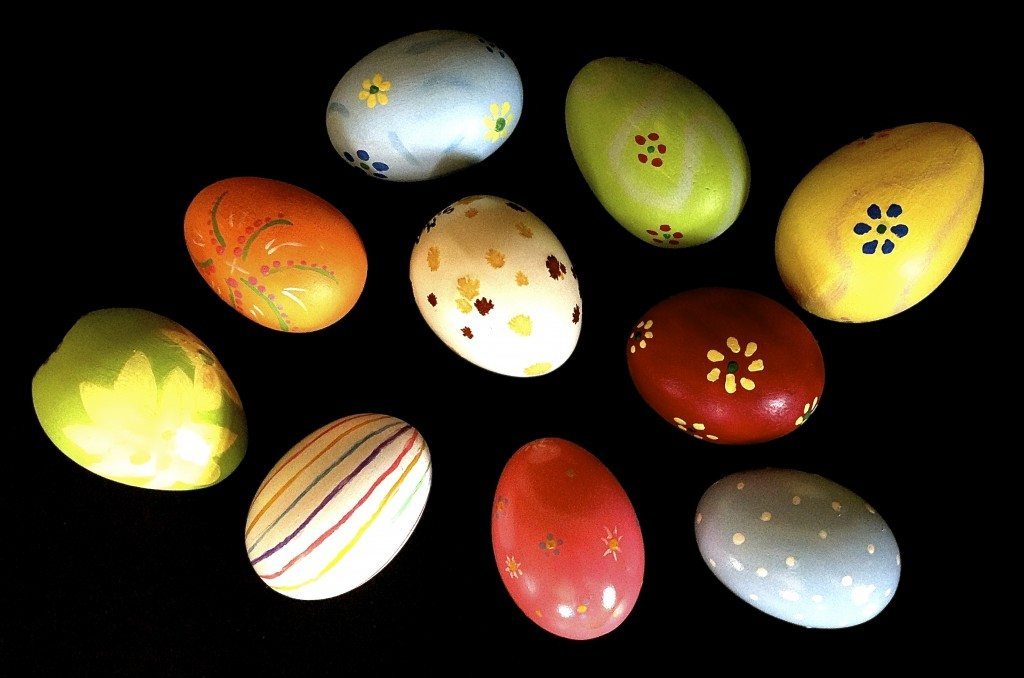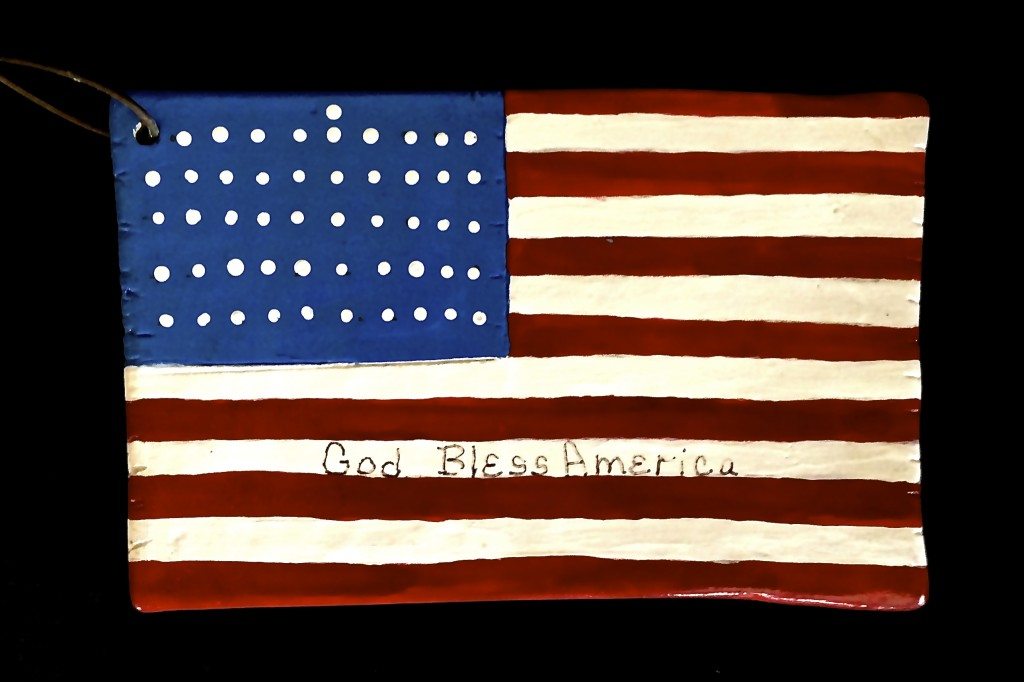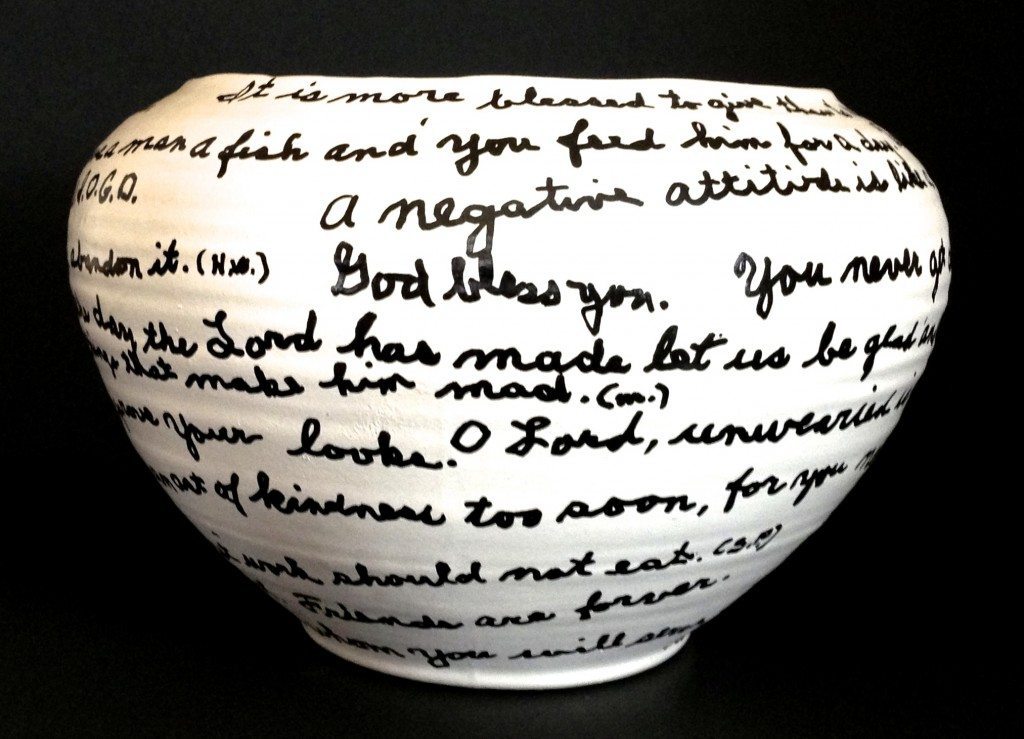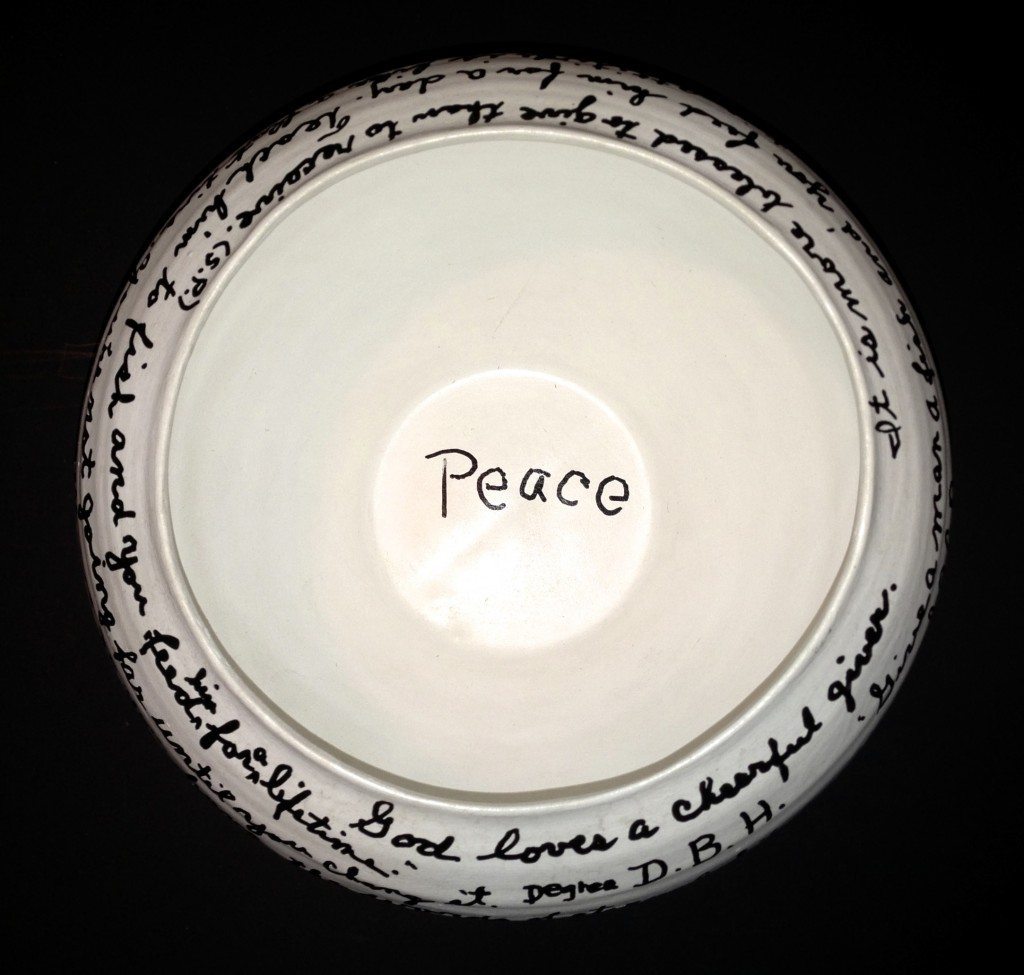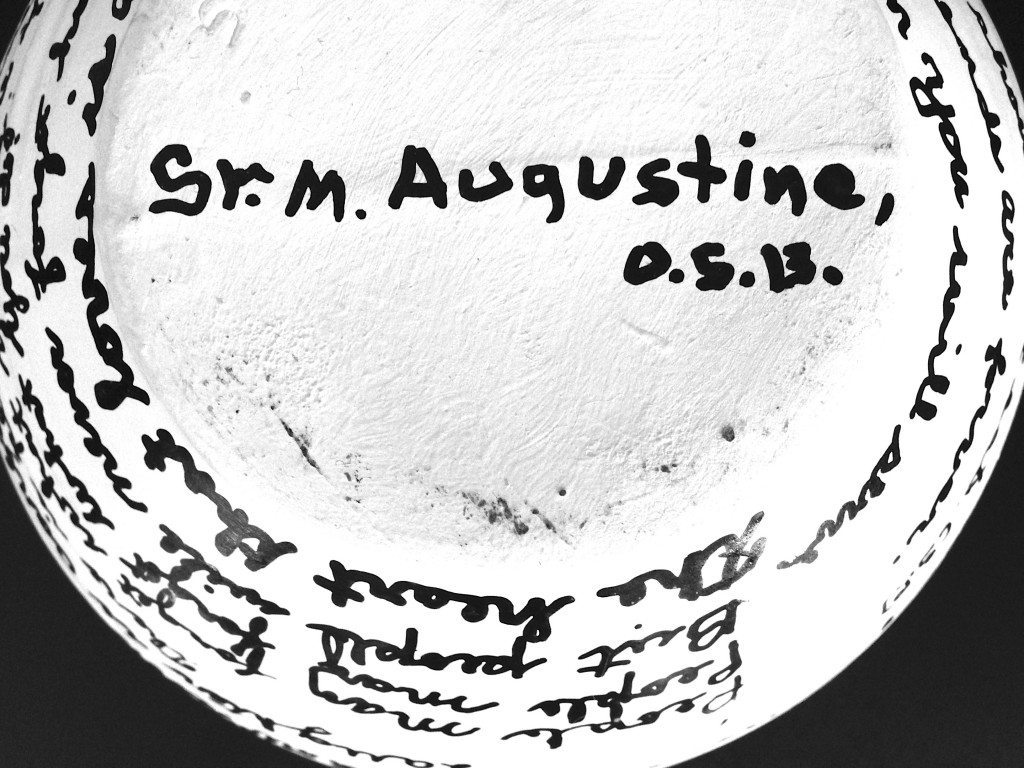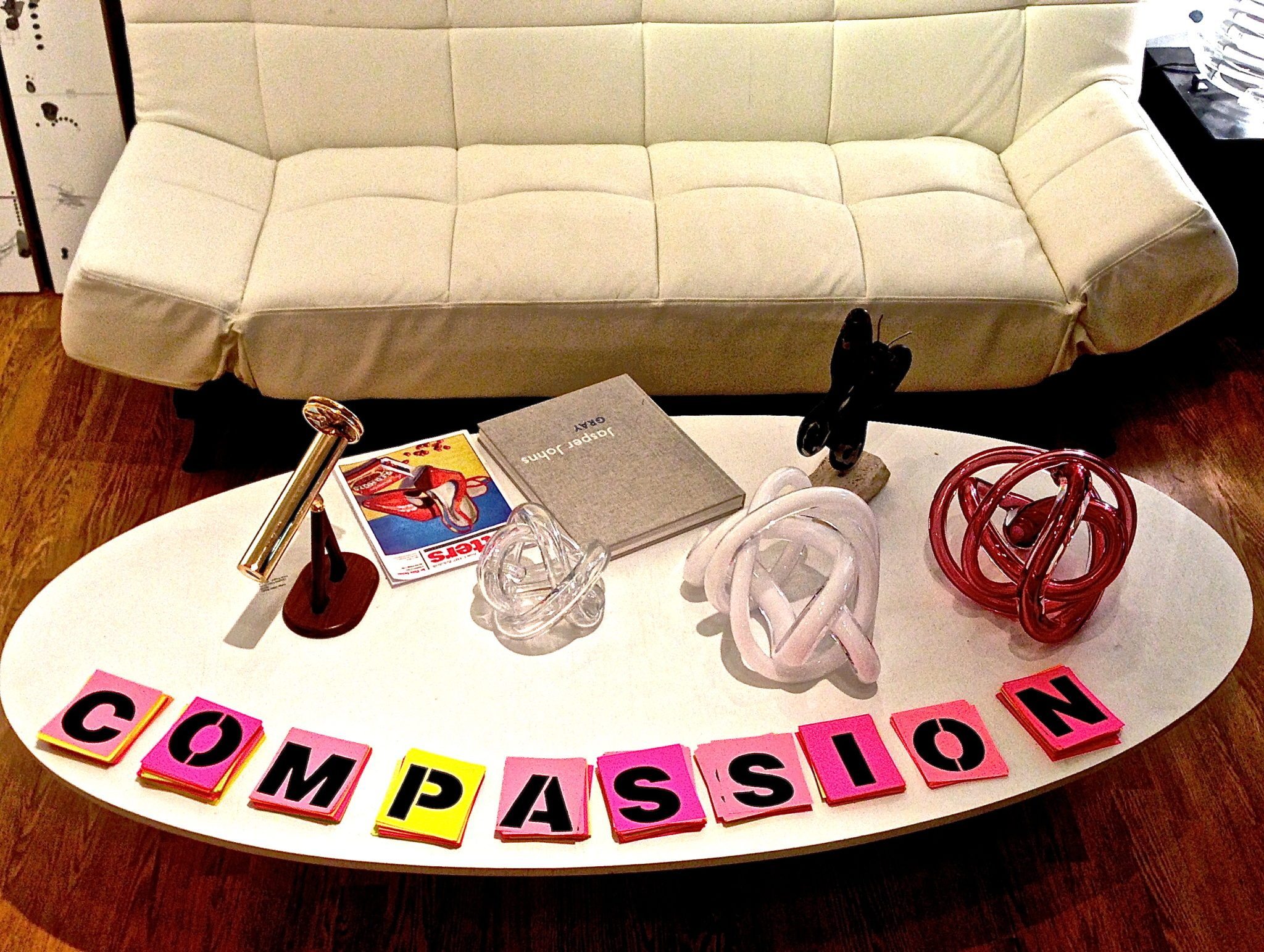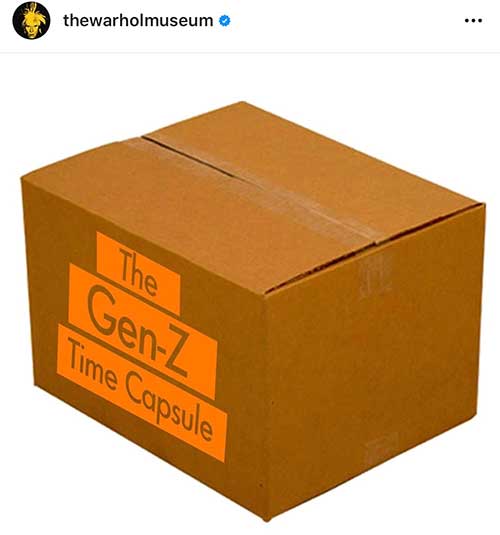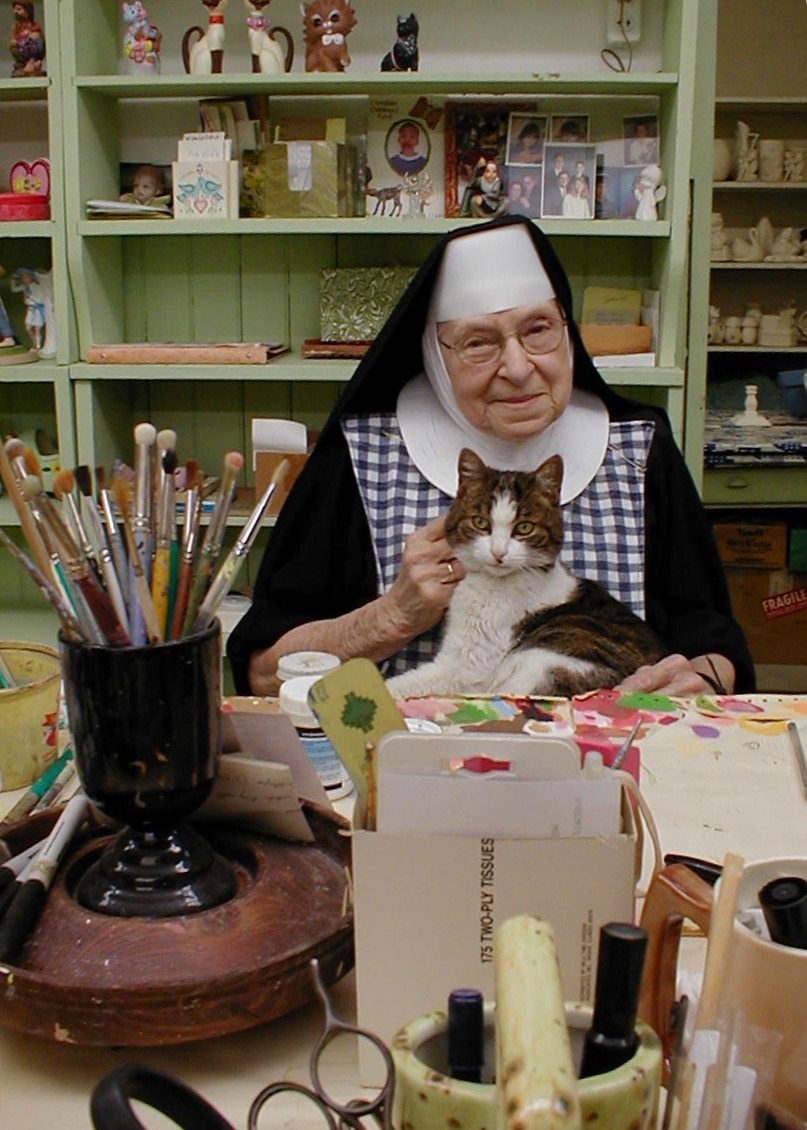
The Art of Sister Augustine
Introduction to The Art of Sister Augustine
As Depicted in
Five Years in Heaven: The Unlikely Friendship That Answered Life’s Greatest Questions
During her more than 40-year career as a self-taught artist, Sister Augustine completed thousands of clayware art pieces, often with her furry calico pal Blitzen nearby. Into her nineties, she worked full-time six days a week in her small ceramics studio and shop, pouring the molds, firing the greenware (which was always accompanied with a sprinkling of Holy Water and prayer to Saint Francis), and then painting or glazing the bisqueware. Following a career in education, Sister opened St. Joseph Ceramics in 1964 on the grounds of the oldest Benedictine convent in the U.S., St. Joseph Monastery (founded in 1852) in St. Marys, PA.
Sister Augustine was a prolific artist who could easily transition between realism, folk art, primitive, and abstract, depending on what she was creating. A pillar of humility, Sister often downplayed her talent, saying, “This is God’s work. It’s His hand that guides mine.”
Sister had always been known for her Nativity sets, which can be found in every state in the U.S., as well as in Japan, England, and Germany. Likewise, her other pieces were collected in places as far away as Central America, Africa, and even Russia.
A newfound notoriety during the final five years of Sister Augustine’s life, as depicted in Five Years in Heaven, presented a dramatic uptick in popularity for both the artist herself and several of her signature pieces. Front page headlines heralded her comeback into the hearts of new fans everywhere: ST. MARYS NUN’S CERAMIC ART KNOWN WORLDWIDE; SISTER CRAFTS HER OWN NICHE; 90-YEAR-OLD NUN CREATES ART FROM CLAY.
Among Sister’s most collectible pieces were her miniature crosses made from leftover clay, which are depicted in Chapter 6: Tiny Crosses. Also, her simple forget-me-not motif, which is the subject of Chapter 4: Forget-Me-Not, can be found on everything from teacups and saucers, crosses, and dinnerware to Easter eggs and statues of the Blessed Mother.
However, of the extensive body of work Sister Augustine sent into the world, her most celebrated series was the Gussie’s Special. The abstract bowls and vases bearing this title, which was inspired by her nickname among the other sisters at St. Joseph’s, were created mainly by Sister cleaning her brushes off on white bisqueware while painting other items. Each rippled bowl and vase was an allegory—clay and paint radiating something much greater than art supplies—a vibrant nod to the “treasure in earthen vessels” that the apostle Paul describes in 2 Corinthians 4:7. During the last five years of her life, Sister Augustine created nearly 500 Gussie’s Specials, making them her magnum opus.
The following exhibit of Sister Augustine’s work is comprised of selected pieces from my personal collection.
ENJOY…
The Art of Sister Augustine
Gussie’s Specials
(Depicted throughout Five Years in Heaven)
Forget-Me-Nots
(Depicted in Chapter 4: Forget-Me-Not)
Tiny Crosses
(Depicted in Chapter 6: Tiny Crosses)
The Blessed Mother
(Depicted throughout Five Years in Heaven, including Chapter 14: Our Lady of Love, which is based on the title Sister Augustine gave to the second statue shown below.)
Self Portrait
(Depicted in Chapter 15: The Nativity Donkey)
The Nativity Donkey
(Depicted in Chapter 15: The Nativity Donkey)
The Peace Dove
(Depicted in Chapter 19: Talk of the Town)
Easter Eggs
The U.S. Flag
The Quote Bowl
(Depicted in Chapter 17: Food for Thought)

